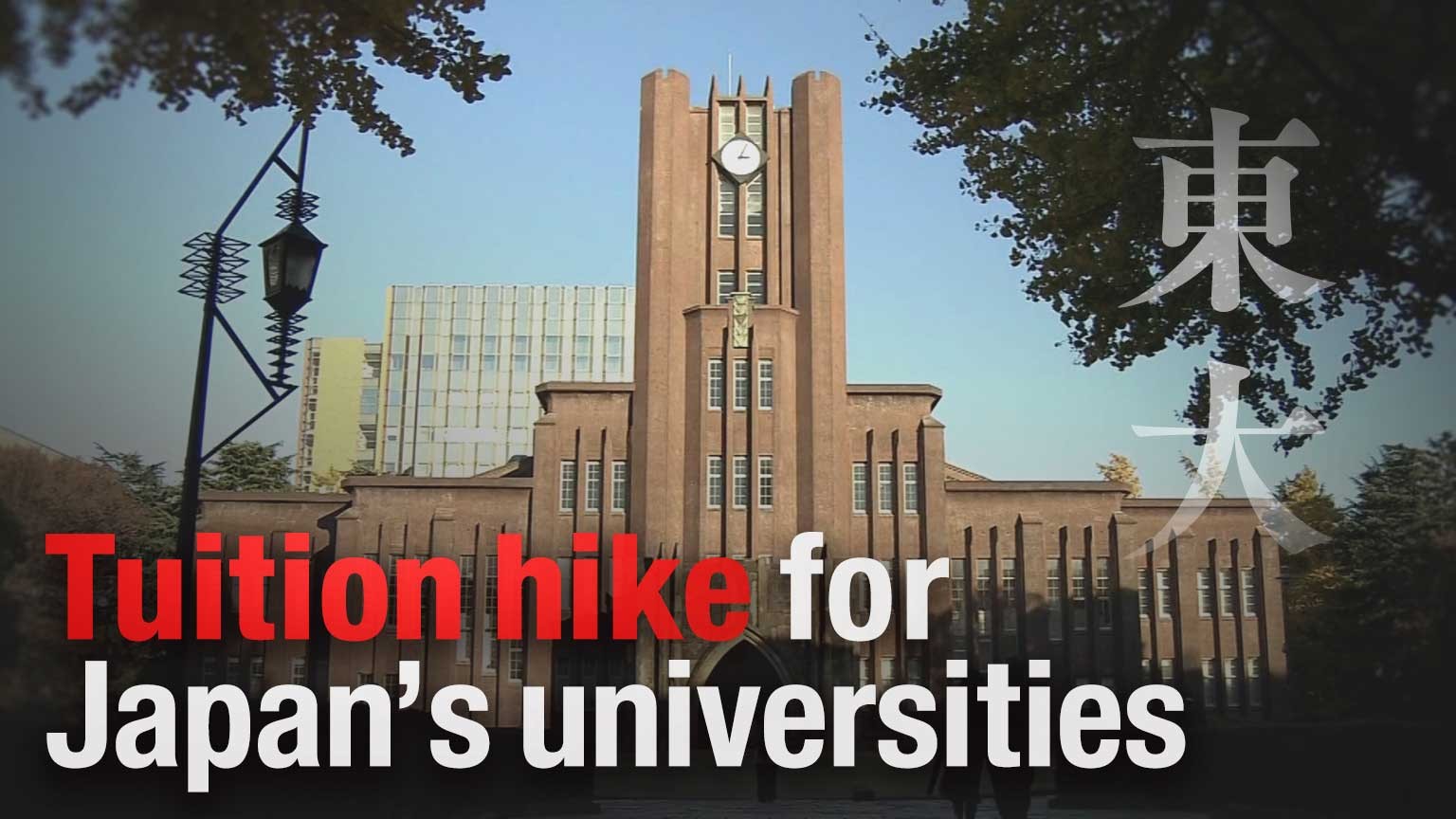Fees could rise by more than 100,000 yen, or about 630 dollars, from the current 535,800 yen (about 3,370 dollars) per year if raised to the upper limit set by the government.
The Japan Association of National Universities, which consists of 86 institutions across the country, issued an emergency statement earlier this month, drawing attention to the financial burden due to soaring prices and the yen's depreciation.
The University of Tokyo released a comment by President Fujii Teruo earlier in June.
"The University of Tokyo has been striving to improve our educational and research environment. ... At the same time, we must address various challenges such as aging infrastructure, rising prices, utility costs, and personnel costs, despite our limited financial resources."
Fujii added that the tuition fees have remained unchanged for 20 years, but if they are raised, "providing support to students facing financial difficulties by expanding tuition exemptions and scholarships" should be considered.
Sparking repercussions
About 400 students staged a rally at the university opposing the fee hikes, and others gathered and spoke to the media.
They called on the university to cancel the proposal to hike fees and keep them fully informed.
President Fujii has promised to exchange opinions online with the students.
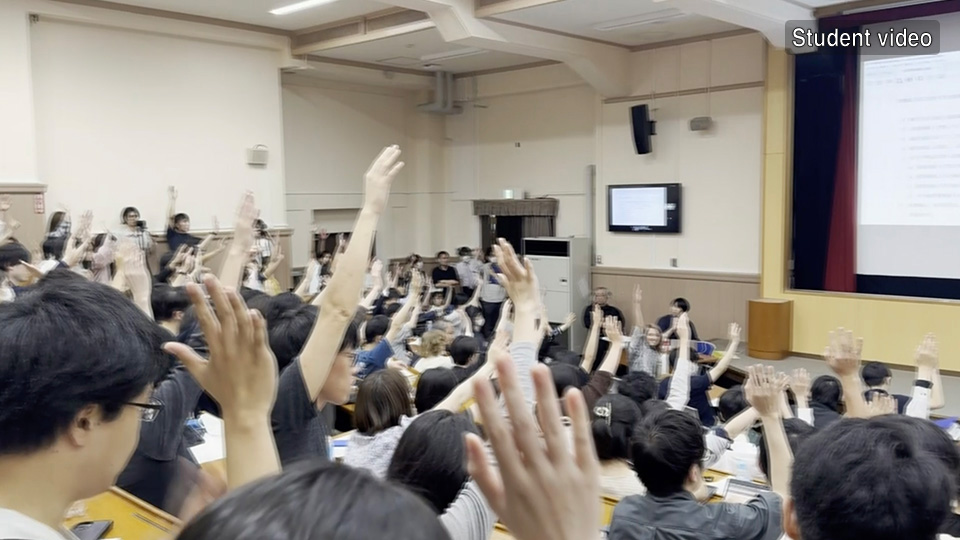
Hurdle for students from rural areas
One third-year student at the University of Tokyo serves as the head of a group supporting high school students in rural areas to enter further education. She also graduated from a public high school in Ishikawa Prefecture.
The student said her family couldn't afford to send her to cram schools, and even after she entered university, she took a part-time job to pay for rent and living expenses while receiving grants from private companies.
She said that the impact of rising prices has been significant lately, so she is borrowing textbooks from seniors and friends.
The student said the fact that the University of Tokyo is considering raising fees would make students in rural areas rethink their options as they already face financial difficulties.
She is concerned that some people would think the university is only catering to wealthy people.
The college junior now has three part-time jobs. She started a new job at a hotel after learning about the hikes. She says she can't take on more work because she needs time to study for graduate school.
"If I start another part-time job, I would be overwhelmed. I don't know why I came to university anymore," she says.
She stressed that scholarships should be made available to offset any fee hikes, and the university should explain how the money is being used.
Raising tuition fees to improve the educational environment
Tokyo Institute of Technology upped its tuition fees by nearly 100,000 yen from 535,800 yen to 635,400 yen in 2019.
The university has also been working to acquire external funds through joint research with private companies. But it raised fees in order to further improve the educational environment and contents, and spent about 900 million yen of the increase in revenue on education budgets.
It reorganized classrooms to enable easy discussions with a small number of people, and increased the number of teachers from abroad from 255 in 2018 to 300 in 2021. It also renovated its libraries and set up private rooms for self-study.

Along with the rise in tuition fees, it now provides financial support for students. The number of students eligible for the university's unique scholarship program based on donations from companies and individuals has seen a 20-fold increase.
The university has set up preferential quotas for students from rural areas, those whose parents are not college graduates, and females. It has also expanded its counseling system for students who need scholarships.
One male freshman studying for a master's degree and taking advantage of a scholarship said it is inevitable that tuition fees will be higher than other universities as prices are rising and there are many expensive research facilities. But he added that he works part-time to cover living expenses, and that if tuition fees were lower, he could focus more on research.
Population outflow makes it difficult for rural universities
Ehime University in Matsuyama City is the only university in the prefecture. About 8,000 students are enrolled there, and 40 percent are from within the prefecture.
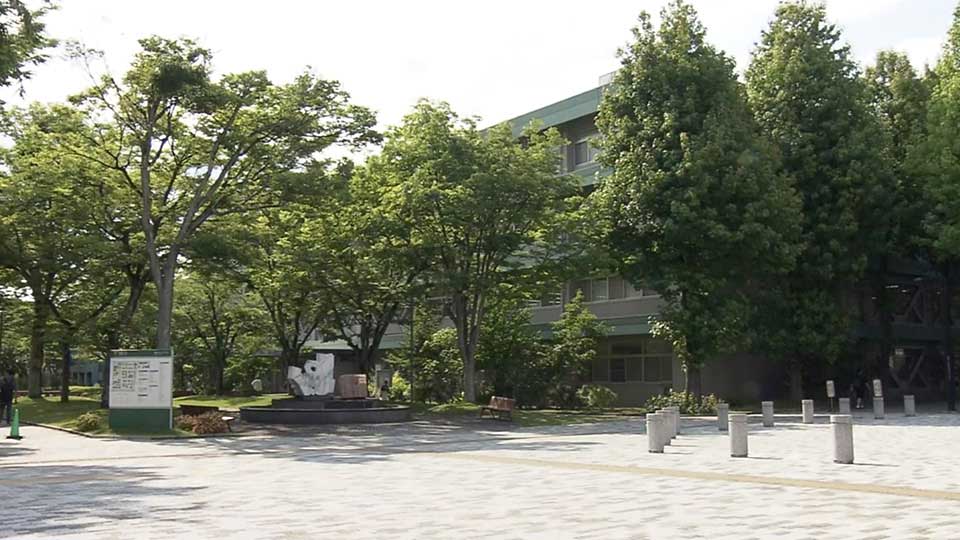
According to the university, the operating expenses subsidy, which accounts for half of its income, has decreased by about 2.2 billion yen, or 17 percent, from 20 years ago. It is now facing difficulties due to higher utility and personnel costs, as well as higher prices in general.
The university gained around 600 million yen in revenue in fiscal 2022 by posting ads of local firms in its cafeterias and receiving fees from venture companies that use university technology and facilities. Some 700 firms in the prefecture were called on to make donations.

But it still couldn't cover the increase in utility and personnel costs and repairs are on hold.
Ehime University President Nishina Hiroshige said, "We are having an extremely difficult time because of rising personnel costs and electricity bills in the hundreds of millions of yen."
He says the university has been working to cut spending and boost income, but it is difficult to raise large amounts of money compared to Tokyo, where many large companies are located.
"The situation is quite tight," says Nishina, expanding on the dilemma that the university faces.
But he also says he has no plan to raise fees.
"If we raise tuition fees, we are concerned that more students will opt for universities outside the prefecture, which will only add to the population outflow."
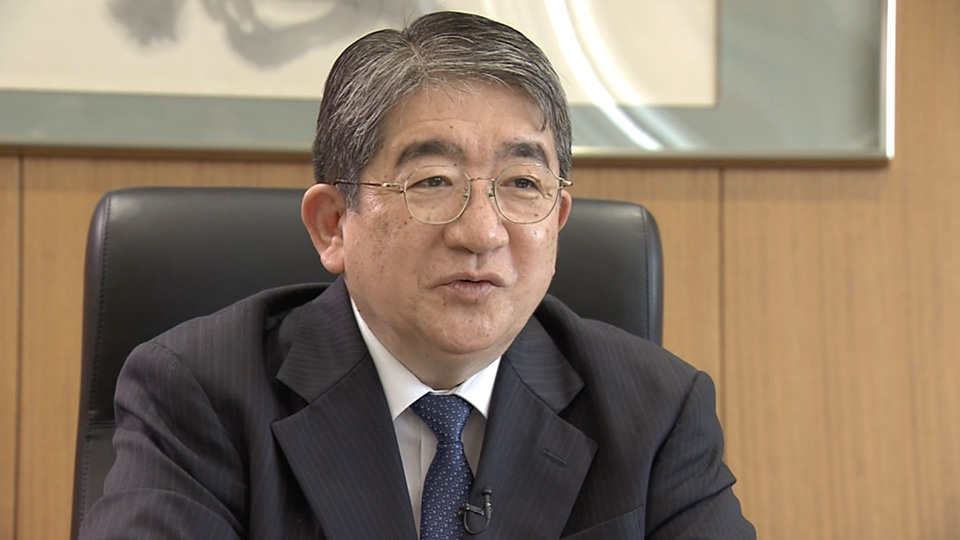
Should fees be tripled from 2040?
At an education ministry special committee discussing the future of higher education from 2040 onward, the president of a private university proposed that tuition fees should be raised to 1.5 million yen — about three times the current figure.
President Itoh Kohei of Keio University said that the population of 18-year-olds will drop more than 20 percent from the current level in 2040, and that Japan will only be able to harness the skills of a shrinking number of highly educated people. Advanced IT education and language skills are needed to master AI and compete on a global level.
He said he feels a sense of crisis that Japan's power as a nation will rapidly decline unless higher education is revamped. Universities will need to change to provide such education, but it will cost a lot of money.
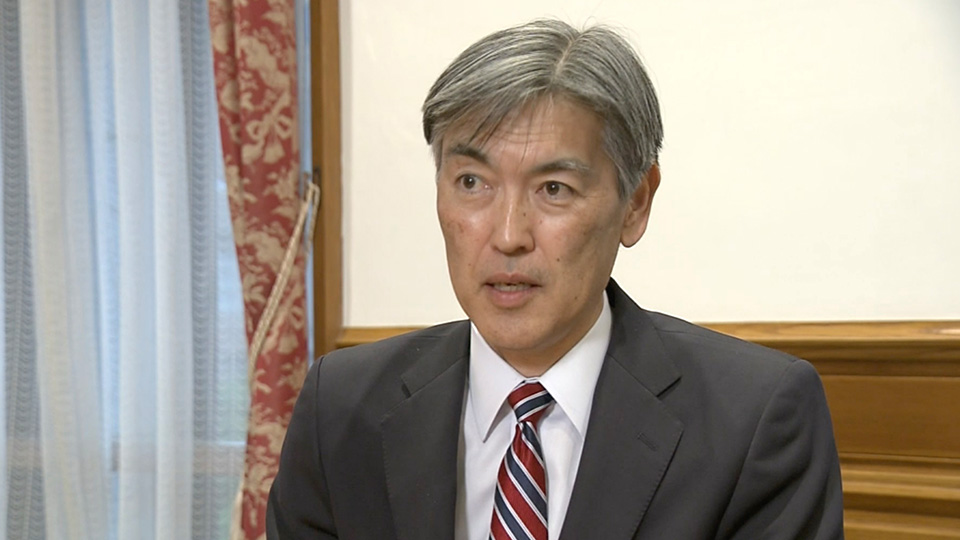
Tuition fee standard unchanged
The Japanese government allocates operating expenses to national universities as basic costs like many other countries. The total amount for fiscal 2024 is over 1 trillion yen, or nearly 8 billion dollars. The figure is down about 13 percent from 20 years ago.
Meanwhile, an Education Ministry survey shows that the average annual tuition fee for private universities was about 830,000 yen in fiscal 2005, but nearly 960,000 yen in fiscal 2023, up around 130,000 yen. But the standard amount for national universities set by the government in fiscal 2005 was 535,800 yen per year, and the figure has remained unchanged for nearly 20 years.
Each national university is allowed to raise tuition fees up to 120 percent of the standard amount when there are special circumstances. The education ministry says that seven institutions have raised fees across the board since fiscal 2019.
Higher tuition fees and lower public spending
According to a report compiled by the Organization for Economic Co-operation and Development (OECD), average yearly tuition fees for national and public universities in Japan were the fifth highest among the 35 member countries in 2019.
England topped the list at 12,255 dollars, the United States at 9,212 dollars, and South Korea at 4,814 dollars, followed by France at 230 dollars. In some countries such as Finland and Sweden, tertiary education is free.
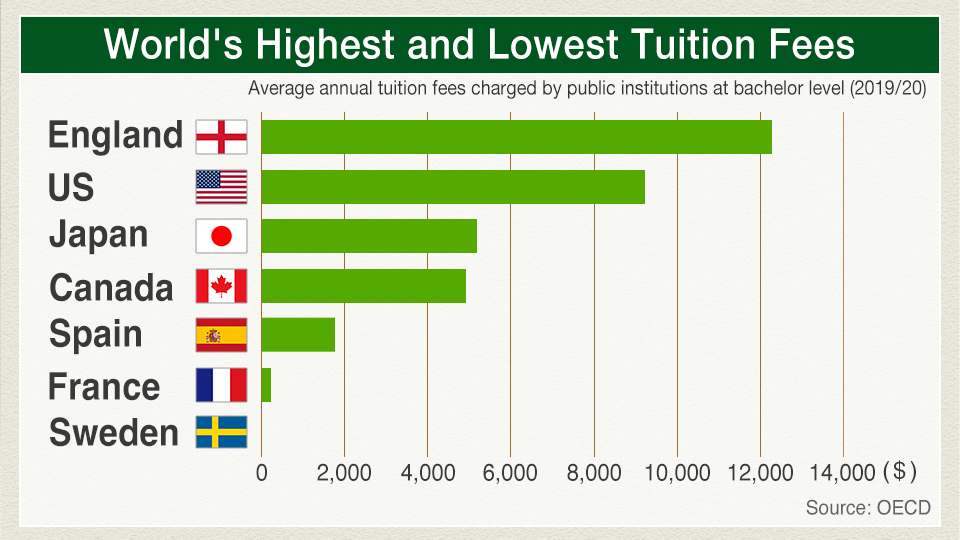
However, an OECD report from 2023 shows that the burden for higher education in Japan comes to 51 percent for households, 36 percent for the public sector and 13 percent for the private sector.
The household burden is the fifth highest after Colombia and Chile, and nearly 30 percentage points higher than the 22 percent average of the 37 countries surveyed.
The report also says Japan's public spending on higher education was 0.5 percent of GDP — the lowest among the G7 member nations.
Expert: Good opportunity for discussion
Kobayashi Masayuki, a professor at J.F. Oberlin University in Tokyo who is well-versed in university management, points out that now is the time to discuss how these institutions should manage costs.
Kobayashi elaborated on the current state of management of national universities. "For the past 20 years, subsidies for operating expenses have been reduced by one percent each year. That situation and recent price hikes have been working like body blows."
He added, "The current focus on national university tuition fees is a good opportunity, and we need to discuss how to allocate the cost burden, not just relying on households, but also considering the roles of the public and private sectors."
